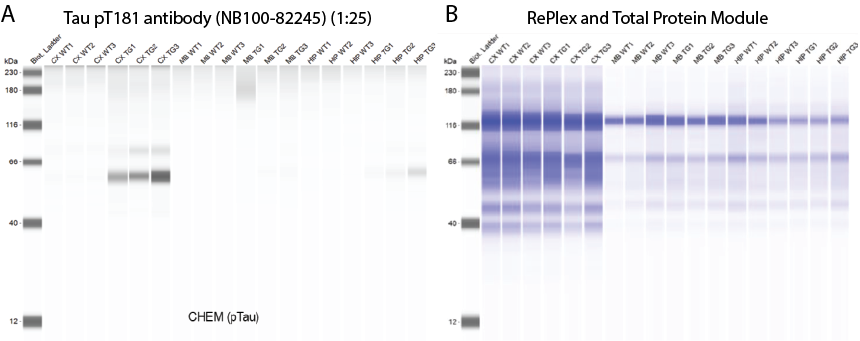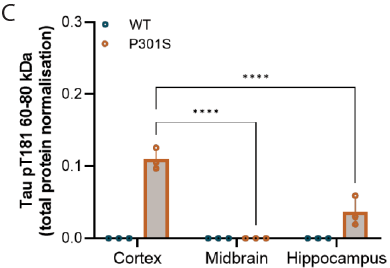Tatiana Moves Closer to Treating Neurodegenerative Diseases With Jess
"Jess is faster and more reliable in terms of quantification and allows us to use low sample volumes, for example, difficult-to-obtain samples such as iPSC-derived neurons."
- Dr. Tatiana Rosado Rosenstock, Principal Scientist, Sygnature Discovery
Odds are you know someone affected by a neurological disorder. The World Health Organization estimates that neurological disorders affect one billion people worldwide, ranging from epilepsy to Alzheimer’s disease. Leading neuroscientists like Dr. Tatiana Rosado Rosenstock are working to improve the world by addressing the global need to treat neurological diseases.
Originally from Brazil, Tatiana had an accomplished career in Academia as a Principal Investigator before joining the private sector after 25 years. In that journey, Tatiana has lived in many different places and learned many languages, including Portuguese, Italian, Spanish, and English, and is currently taking a course in German. Presently, Tatiana oversees a group of accomplished scientists at Sygnature Discovery, each with expertise tailored to achieve success in addressing challenges related to neurodegenerative diseases like Alzheimer's and Parkinson's.
Simple Solutions for Complex Problems
With more cells than stars in the Milky Way galaxy, the brain’s complexity is one of the grand challenges in the field of neuroscience. Faced with complex problems, scientists often seek to avoid complex methods that are slow or misleading. For example, while western blots can provide protein measurements in neurological samples, traditional western blots are laborious, time-consuming, and fraught with poor reproducibility, consuming large amounts of precious samples in the process. ELISA provides reproducible quantification of protein expression, but it often struggles with complex samples like brain tissue, where matrix effects can skew results.
Simple Western™ is an innovative technology that performs capillary-based immunoassays, taking the complexity out of traditional immunoassays and filling in their shortcomings. Bio-Techne offers several instruments for Simple Western, including the Jess™ system in Tatiana’s lab. Tatiana explains that “at Sygnature, customers prefer Jess because it has higher throughput than the ‘normal’ western blot. Furthermore, Jess is faster and more reliable in terms of quantification (due to the electropherogram, it is possible to calculate the area under each peak corresponding to the protein) and allows us to use low sample volumes, for example, difficult-to-obtain samples such as derived neurons of iPSC.”
Simple Western is a Game Changer
Minimal Sample Requirements, Reliable Results, and Hands-Free Automation
Many neurological samples, like brain tissue and iPSC-derived neurons, are limited in supply. That’s why one of the main advantages of Simple Western is low sample volumes, as little as 3 µL with pg-level sensitivity, which Tatiana acknowledges is a “game changer.” With the minimal sample requirements on Jess, Tatiana’s team completed a study on biomarkers of Alzheimer’s disease in different brain regions from animal models and still has samples left to study more biomarkers related to neuroinflammation, mitochondrial function, and neuroplasticity.
When it comes to biomarker analysis, ELISA does not provide protein separation, so it cannot easily detect isoforms of biomarkers like Tau, a problem made worse by a lack of validated antibodies. Due to its many isoforms, Tau often appears as a smear on traditional western blot. By contrast, Simple Western provides high-resolution capillary electrophoresis for size-based separation of proteins, which makes it easy to detect and quantify isoforms of proteins like phospho-Tau (FIGURE 1A). “In the case of protein degradation or post-translational modification, the fact that the analysis can be specific (and reliable) for different isoforms with an exact molecular weight provides a superb advantage over the standard western blot,” said Tatiana. Plus, the RePlex feature on Jess provides a second round of probing compatible with the Total Protein Detection Module to normalize protein expression data for accurate Tau quantification in different brain regions (FIGURE 1B-C).
Importantly, Simple Western’s Total Protein Detection Module provided more accurate normalization of protein expression data than the housekeeping β-actin protein, which varied significantly between brain regions, as Tatiana’s team discovered (data not shown).
In addition to these advantages, Simple Western is fast and fully automated after a simple sample preparation step, generating results in 3 hours, which Tatiana says is the most important characteristic for her in using Jess. And thanks to Simple Western’s hands-free automation, Tatiana has more freedom to pursue other interests, like studying for her course in German.

FIGURE 1. Expression of the clinically relevant biomarker phospho-Tau in the cortex, midbrain, and hippocampus of wildtype and transgenic mouse model of Alzheimer's disease measured on Simple Western‘s Jess instrument. (A) Immunodetection of phospho-Tau using the pT181 antibody from Novus Biologicals (NB100-82245), (B) Total protein detection in the second probing cycle of RePlex, (C) Quantification of pT181 expression normalized to total protein.
